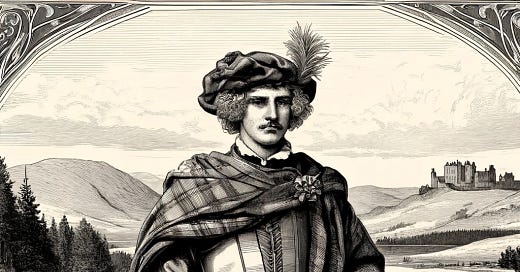In the mist-shrouded landscapes of medieval Scotland, the role of the Thane was both prestigious and pivotal. As hereditary nobles, the Scottish thanes held significant power and were instrumental in the governance of the realm. Their status not only brought substantial privileges but also responsibilities that shaped the political structure of medieval Scotland.
A Thane, in Scottish history, was essentially a man who held land directly from the king, a rank that was both noble and influential. Originating from the Old English word "þegn," meaning servant or attendant, the title evolved in Scotland into a role akin to that of an earl or baron in other parts of medieval Europe. While thanes were most prominent before the 13th century, their influence lingered long after, as they played key roles in local governance and military leadership.
Keep reading with a 7-day free trial
Subscribe to Tales of Forgotten Scottish History to keep reading this post and get 7 days of free access to the full post archives.




